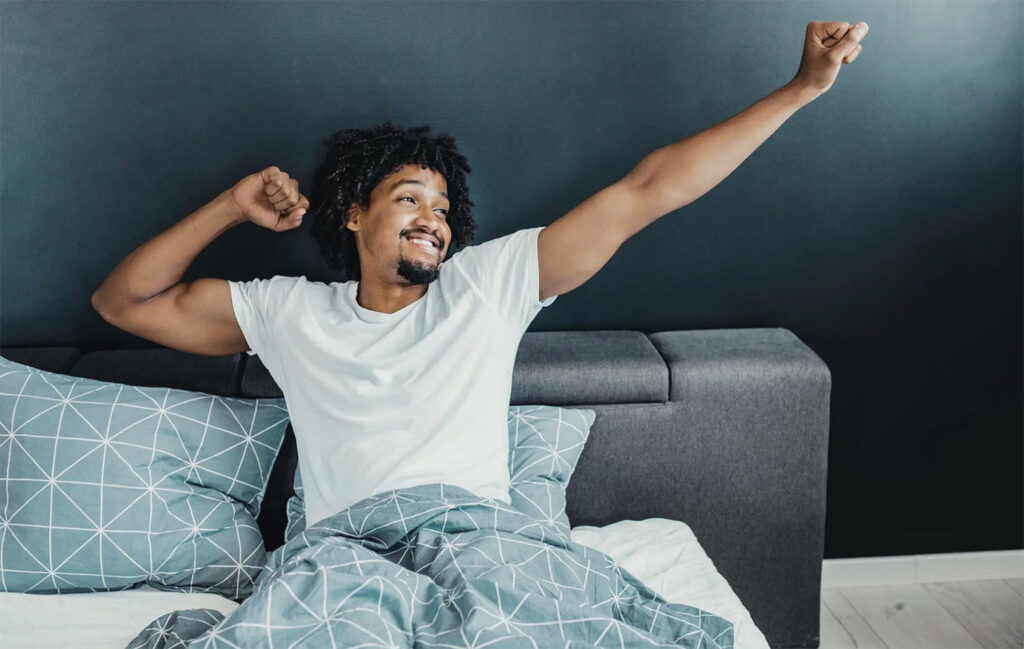By Alliance Communications Coordinator Amy Durr
From the moment my oldest child was born I was sure that I would never sleep again. I had been a restless, albeit dedicated, sleeper, but suddenly I had joined the 50 – 70 million Americans with sleep disorders.
Twenty-two years, three kids and one divorce later I’ve made some gains in my overall sleep. It hasn’t been easy. Fortunately, I have uncovered some helpful hints that have made a difference for me and I hope they will for you as well. But first, we need to understand some of the barriers to good sleep.
What Gets in the Way of a Good Sleep?
Here are some of the factors that interfere with sleep, many of which are intertwined:
- sleep disorders
- stress and anxiety
- inconsistent sleep schedules
- caffeine and alcohol consumption
- poor sleep hygiene
- exposure to blue light before bed
- medications
- medical conditions
- environmental factors
Have you struggled with any of these? I’ve dealt with at least 5 and have discovered it’s a confounding undertaking because there are so many factors at play. Some are just hard, like maintaining good sleep hygiene. It began to dawn on me that I needed a new approach and it has worked.
Instead of Focusing the Problems, Try Adding Good Healthy Things
I’ve always found it easier to motivate myself with something good instead of punishing myself for something bad. When I want to work on fitness, I start exercising without any new restrictions on what I eat. Eventually the exercise makes me want to eat better.
It’s similar with sleep – the more I stress about how much sleep I’m not getting, the more tired and unable to sleep I am. But I found there are easy changes any of us can make during the day that help sleep better when night falls.
“Things like getting outside in the morning sunlight, moving our bodies, limiting caffeine and eating nourishing foods set us up for the best sleep possible at night,” Rachael Shepard-Ohta shares with Avocado Magazine.
- View sunlight by going outside within 30-60 minutes of waking. Do that again in the late afternoon, prior to sunset. Dr. Andrew Huberman, a neuroscientist as well as a popular podcaster and social media influencer, recommends 20 – 30 minutes of natural light.
- Exercising regularly helps you fall asleep faster, sleep more soundly, and wake refreshed. “Physical activity is undeniably one of the most effective ways to ensure a restful night,” says Calm. However, not all exercises yield the same results. They share a comprehensive list of eight activities that can effectively improve your sleep quality: yoga, walking, tai chi, pilates, aerobic exercise, progressive muscle relaxation, strength training and breathing exercises.
- Try to limit caffeine after 10 am in the morning. “Caffeine will impact your sleep in a number of different ways,” says Dr. Matthew Walker. “Something many people don’t understand about caffeine is that it’s duration of action is much longer than you may expect,” and it also decreases your deep sleep by 20%.
- Have the right nutrients available when time comes to produce and secrete melatonin for a good sleep onset. Marie-Pierre St-Onge, a nutrition scientist at Columbia University who studies the connection between sleeping and eating, recommends the top 20 powerhouse ingredients to stock your sleep-supporting kitchen, including: cherries, pineapples, tomatoes, walnuts, dairy products, barley and pumpkin.
I love the idea of setting your circadian rhythm using sunlight, which could be combined with walking. And I’m tickled by the fact that the tryptophan in turkey really does help to make us tired (although not in 30 minutes!). As I try to incorporate rest and reduce stress, I know that good sleep gives us a huge boost, and it’s worth pursuing.

